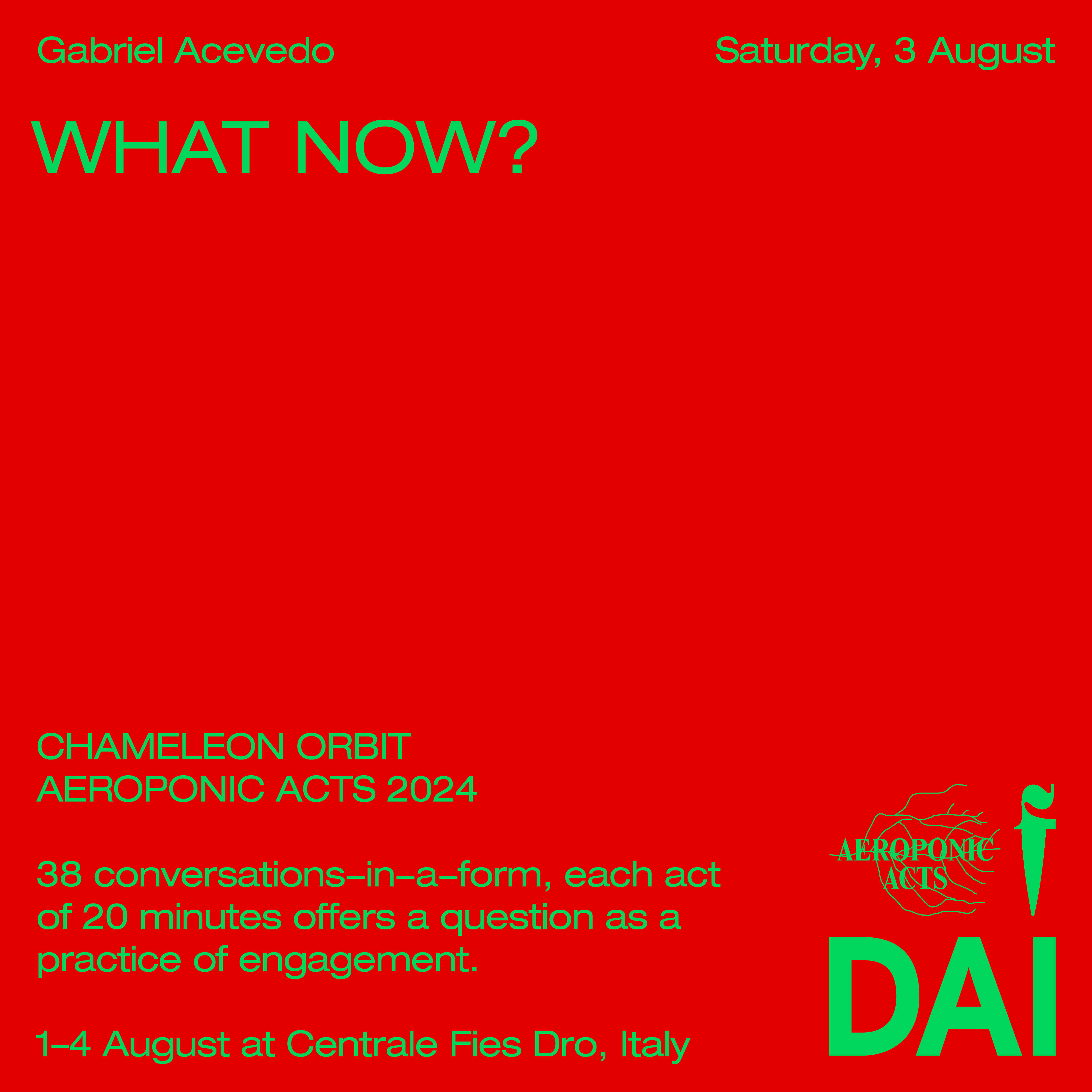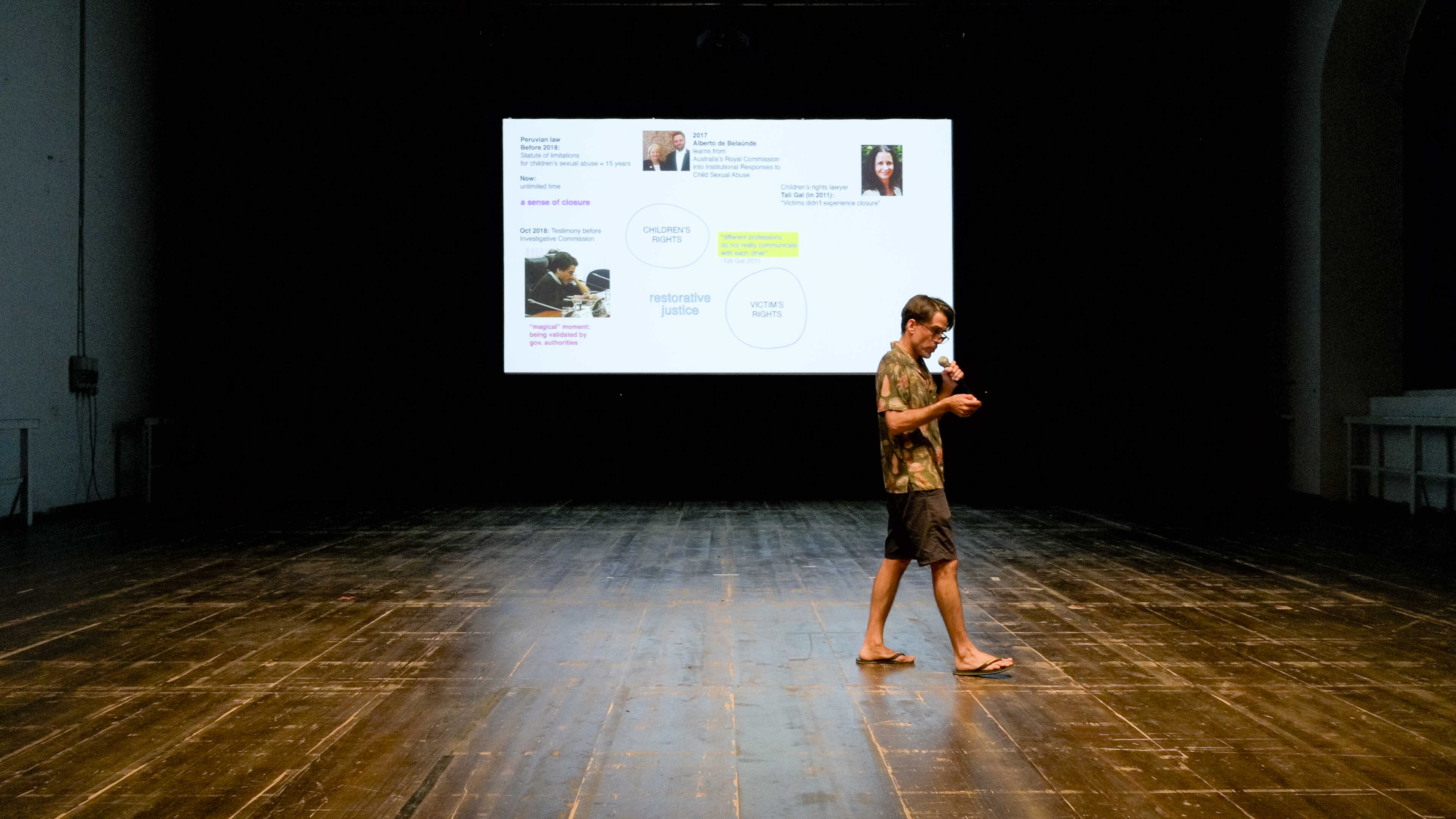Gabriel Acevedo ~ What now?
In order to process and resolve, in present times, what Ernesto de Martino called the “crisis of presence” in the 1950s (the alienation from history produced by trauma), it’s necessary to resort to both cultural and political analysis. In other words, the cultural interpretation of underlying narratives of oppression and violence needs to be complemented by analysis of representative democracy’s dynamics. The risk of leaning too much on one approach only, be it cultural or political, is that we obliterate the other, thus falling into an interpretative enclosure, a narcissistic trap. One of the most notorious expressions of this is the territorialization of words, like “radical”, as if the emphasis on identity and the echo chambers of “like-minded people” was spreading into language itself. The consequence is that critique may end up being an alienating agent, producing a new type of presence crisis, detached from abstraction or affect—or both.
AEROPONIC ACTS 2024 ~ Chameleon Orbit
About Gabriel Acevedo


